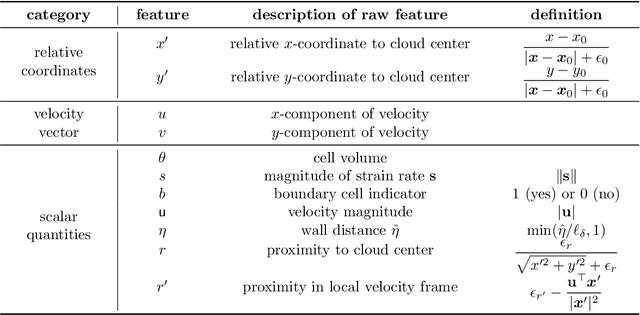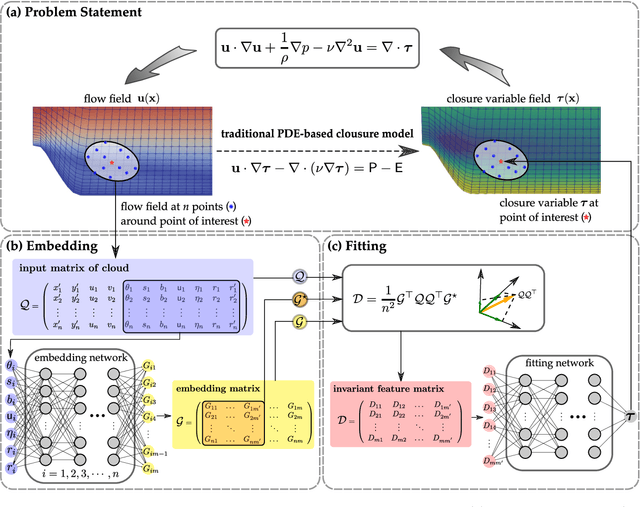Frame-independent vector-cloud neural network for nonlocal constitutive modelling on arbitrary grids
Paper and Code
Mar 11, 2021



Constitutive models are widely used for modelling complex systems in science and engineering, where first-principle-based, well-resolved simulations are often prohibitively expensive. For example, in fluid dynamics, constitutive models are required to describe nonlocal, unresolved physics such as turbulence and laminar-turbulent transition. In particular, Reynolds stress models for turbulence and intermittency transport equations for laminar-turbulent transition both utilize convection--diffusion partial differential equations (PDEs). However, traditional PDE-based constitutive models can lack robustness and are often too rigid to accommodate diverse calibration data. We propose a frame-independent, nonlocal constitutive model based on a vector-cloud neural network that can be trained with data. The learned constitutive model can predict the closure variable at a point based on the flow information in its neighborhood. Such nonlocal information is represented by a group of points, each having a feature vector attached to it, and thus the input is referred to as vector cloud. The cloud is mapped to the closure variable through a frame-independent neural network, which is invariant both to coordinate translation and rotation and to the ordering of points in the cloud. As such, the network takes any number of arbitrarily arranged grid points as input and thus is suitable for unstructured meshes commonly used in fluid flow simulations. The merits of the proposed network are demonstrated on scalar transport PDEs on a family of parameterized periodic hill geometries. Numerical results show that the vector-cloud neural network is a promising tool not only as nonlocal constitutive models and but also as general surrogate models for PDEs on irregular domains.
 Add to Chrome
Add to Chrome Add to Firefox
Add to Firefox Add to Edge
Add to Edge